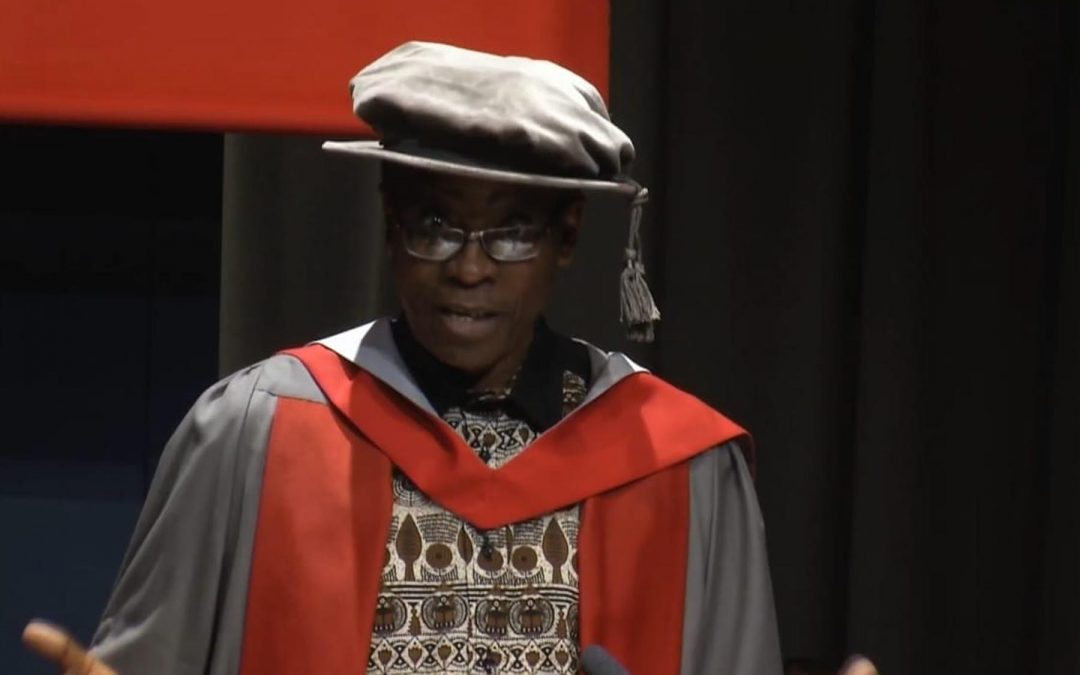The Classroom of life has no graduation. Life offers classrooms without walls. Increasingly we are seeing these learning spaces to be the streets. They remain enclosed by our environment and our culture. Importantly, the Classroom of life has no graduation.
The classrooms of universities and multiversities, are concentrated arenas of learning that offer special opportunities to raise students and intellectuals to speak up for the poor, for Mother Earth and her children. In a time where our foods are being assailed by chemical-based agriculture, science needs to assure us that what we eat is not eating us up. At a time when our water, land and air are poisoned by wrongheaded extractivism, we need to remind ourselves that wellbeing is not defined by how much minerals we dig up, transform or accumulate.
What we make of our environment makes us, molds our imaginations and shapes our philosophies of life. It makes us humane or monstrous.
Distinguished ladies and gentlemen, we cannot be onlookers in the fight to tackle the existential crises of our days, especially that of climate change. Through music and philosophies of life we can persistently project our memories and challenge our imaginations till we all agree that the saying ‘another world is possible’ and calling for ‘system change’ are not mere sloganeering but real calls for action.
We face a challenge of how to communicate the horrors of climate impacts and displacements in ways that can wake the world from slumber. We have a duty to stand as environmental defenders and reject the forces compelling millions to live in extremely contaminated environments and pushing others to early and watery graves in the Mediterranean Sea or to fiery graves in the burning dunes of the Sahara.
With broad spectrum programmes such as the Festival of Ideas annually hosted by the University of York, it is clear that the town and the gown, the field and the laboratory, can all trigger innovation that would dismantle the concentration of power in a few hands and rebuild a future for our collective humanity.
Music, poetry, prose, drama, sculpture, architecture, painting and other forms of arts have been veritable tools for education, as well as maintaining our cultures for ages. Today we can make music with our feet and fists and halt over-consumption and build cooperation, solidarity and the true ideals of wellbeing.
Education transforms. One way this happens is by empowering us to accept dissent as a true mark of patriotism and to accept criticisms and needed solutions, even if they are advanced by those we do not often agree with.
We simply cannot stay silent or feign neutrality as societies fall apart. That is challenge offered by the education and practice at the University of York. This is an arena where academics and practice truly blend. We step up today by looking at the past and with solid hindsight building a harmonious and just future with one another, Mother Earth and all our relatives.
Education transforms. One way this happens is by empowering us to accept dissent as a true mark of patriotism and to accept criticisms and needed solutions, even if they are advanced by those we do not often agree with.
Let us close with “Keep Out of Prison” – a poem written by Ken Saro-Wiwa while in prison.
‘Keep out of prison,’ he wrote
‘Don’t get arrested anymore.’
But while the land is ravaged
And our pure air poisoned
When streams choke with pollution
Silence would be treason
Punishable by a term in prison.
* Nnimmo Bassey’s speaking notes on receiving an honorary degree at the University of York graduation ceremony on 19 July 2019





